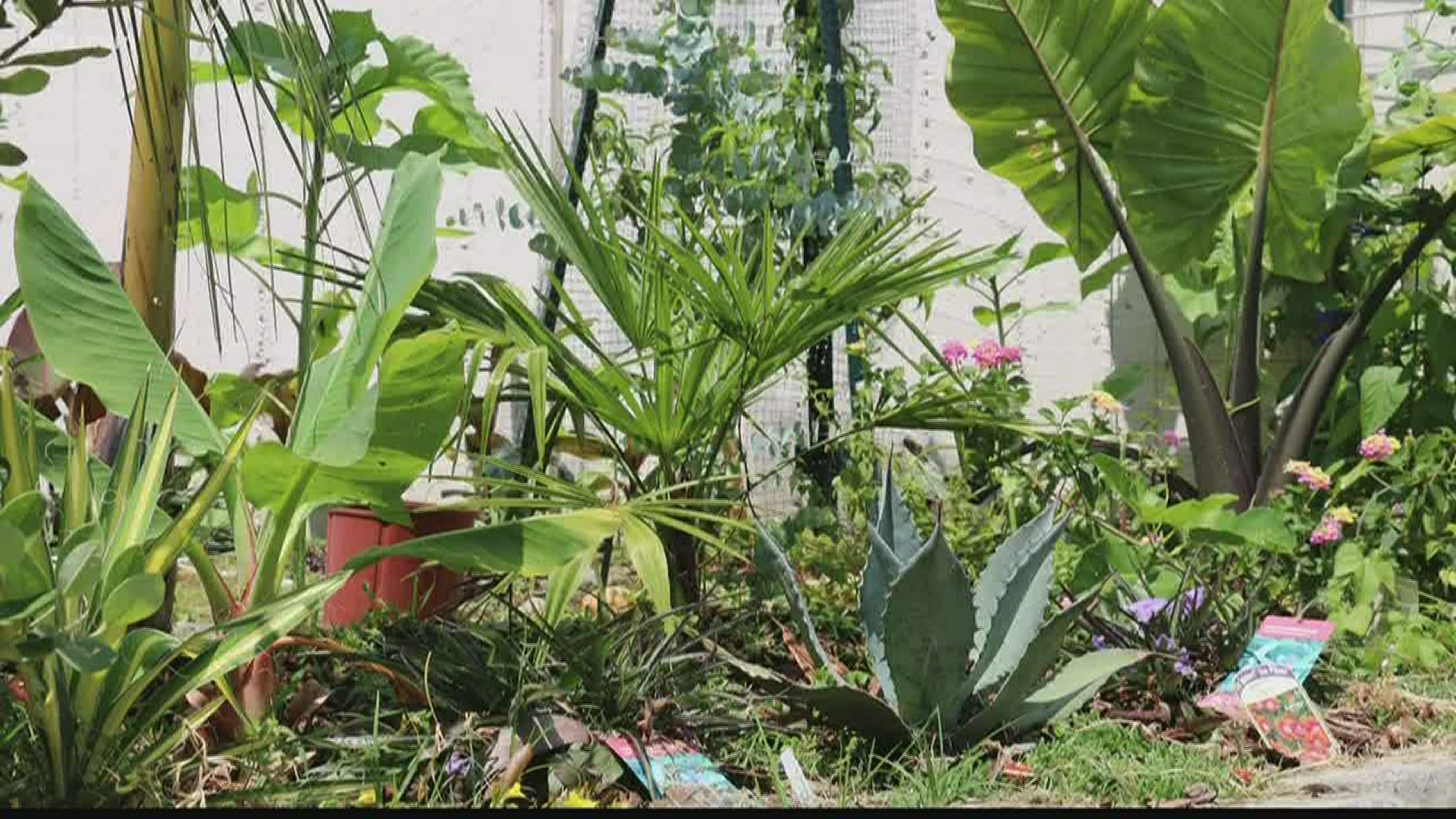COLUMBIA, S.C. — Every gardener has that one problem that keeps them up at night. For me, the problem is deer. I noticed there are some plants the deer prefer not to touch, and I decided to dedicate a piece of Gandy’s Garden to plants that are pretty, sometimes tasty, and always hardy against deer attacks.
First a disclaimer, deer resistant doesn’t mean deer proof. Deer may nibble on a deer resistant plant, but I’ll only consider a plant truly deer resistant if the damage is minor or the plants don’t skip a beat. Deer will eat any plant when hungry enough and tend to be less picky when food is scarce (like in droughts).
Figs
Fig fruit are very attractive to birds, but their foliage is coarse and not a favorite meal for most deer. However, deer ate the fig tree seedling in Gandy’s Garden multiple times last fall (at one point even nibbling on the branches!). This plant can certainly recover from a deer attack, but protect your seedlings because in our experience, deer will graze!
Loquats
Our loquat tree’s foliage is tall and high. The deer have no interest in these. If you’re looking for a pretty tree or shrub for the yard that occasionally fruits, this is one to consider in deer-prone areas. Deer may still cause damage by moving too close the tree. I wouldn’t be surprised if deer nibbled on seedlings.
Sunflowers
This is a deer favorite. We have them in the deer resistant garden as a test to see if deer will go for plants that are surrounded by other plants they find unattractive. So far this year the deer haven’t touched our sunflowers, but rest assured they do love them.
** Update on May 18th ** The Deer took the bait! They ate a few of the sunflowers and the pomegranate was also tasted. It turns out deer definitely do have an appetite for pomegranate. The peach tree was also eaten everywhere that the leaves poked out of the protective mesh. Fortunately the bulk of the tree and its fruit were inside the protective mesh.
Agave
Deer rarely touch agave and other succulents. These aren’t edible, but they make great security plants because of their thorns. The dramatic foliage also makes agaves a beautiful focal plant in a landscape.
Palm trees
Deer seem to avoid palm trees. We have not experienced any damage from deer on ours. Some palms like the Pindo palm (Butia) produce edible fruit!
Bananas
Banana plants, cannas, and other fleshy leafed perennials like elephant ears are not a favorite for deer. Choose the right variety if you’d like your banana to fruit. Many of the cold tolerant bananas sold in South Carolina like Ensete (Red Abyssinian banana) or Musa Basjoo do not produce edible fruit. Varieties that do produce edible fruit may not return in the following year without protection. Most varieties will not fruit if the main stem is damaged by frost.
Pomegranate
We haven’t had this tree long enough to determine if it’s resistant to deer, but it seems promising! ** Update ** the deer sampled the pomegranate proving they do have an appetite for this tree.
Peaches
We do not believe these are resistant to deer so ours are covered in a mesh of netting. This also keeps the birds away, but the netting mesh is wide enough to let pollinators in.
Ginger
These plants are another great perennial that appears to be resistant to deer.
Kiwi
It’s been stated that these plants are resistant to deer, but we have not had this plant long enough to confirm just yet.
Citrus
Our Mandarin orange has not been grazed by deer and is going into summer with a lot of fruit!
Hopefully this gives you a few ideas on what will work well in your deer-prone landscape. If you have any other suggestions or would like to join our garden community, join us on our Facebook Group WLTX Gandy’s Gardeners!

